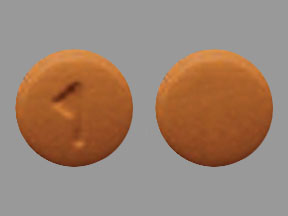Imatinib Interactions
There are 763 drugs known to interact with imatinib, along with 7 disease interactions, and 1 alcohol/food interaction. Of the total drug interactions, 136 are major, 601 are moderate, and 26 are minor.
- View all 763 medications that may interact with imatinib
- View imatinib alcohol/food interactions (1)
- View imatinib disease interactions (7)
Most frequently checked interactions
View interaction reports for imatinib and the medicines listed below.
- Aspirin Low Strength (aspirin)
- Benadryl (diphenhydramine)
- Co-trimoxazole (sulfamethoxazole / trimethoprim)
- CoQ10 (ubiquinone)
- Crestor (rosuvastatin)
- Cymbalta (duloxetine)
- Demerol (meperidine)
- Eliquis (apixaban)
- Fish Oil (omega-3 polyunsaturated fatty acids)
- Iron Sulfate (ferrous sulfate)
- Januvia (sitagliptin)
- Jardiance (empagliflozin)
- Lasix (furosemide)
- Lipitor (atorvastatin)
- Lyrica (pregabalin)
- Metoprolol Succinate ER (metoprolol)
- Metoprolol Tartrate (metoprolol)
- MiraLAX (polyethylene glycol 3350)
- Paracetamol (acetaminophen)
- Pepcid (famotidine)
- Plavix (clopidogrel)
- Probiotic Formula (bifidobacterium infantis / lactobacillus acidophilus)
- Quercetin (bioflavonoids)
- Synthroid (levothyroxine)
- Tylenol (acetaminophen)
- Vitamin B12 (cyanocobalamin)
- Vitamin C (ascorbic acid)
- Vitamin D3 (cholecalciferol)
- Zofran (ondansetron)
- Zyrtec (cetirizine)
Imatinib alcohol/food interactions
There is 1 alcohol/food interaction with imatinib.
Imatinib disease interactions
There are 7 disease interactions with imatinib which include:
- cardiovascular disease
- fluid retention
- bone marrow suppression
- gastrointestinal disorders
- hepatic impairment
- hypothyroidism
- renal impairment
More about imatinib
- imatinib consumer information
- Compare alternatives
- Pricing & coupons
- Reviews (47)
- Drug images
- Side effects
- Dosage information
- During pregnancy
- Drug class: BCR-ABL tyrosine kinase inhibitors
- Breastfeeding
- En español
Related treatment guides
Drug Interaction Classification
| Highly clinically significant. Avoid combinations; the risk of the interaction outweighs the benefit. | |
| Moderately clinically significant. Usually avoid combinations; use it only under special circumstances. | |
| Minimally clinically significant. Minimize risk; assess risk and consider an alternative drug, take steps to circumvent the interaction risk and/or institute a monitoring plan. | |
| No interaction information available. |
See also:
Prilosec
Prilosec (omeprazole) is used to treat symptoms of GERD and other conditions caused by excess ...
Revlimid
Revlimid is used to treat types of multiple myeloma, mantle cell lymphoma, follicular lymphoma and ...
Botox
Botox is used for cosmetic purposes and to treat overactive bladder symptoms, urinary incontinence ...
Prevacid
Prevacid is used to treat and prevent stomach and intestinal ulcers. Learn about side effects ...
Jakafi
Jakafi is used to treat certain types of myelofibrosis or polycythemia vera in adults, and certain ...
Mercaptopurine
Mercaptopurine systemic is used for acute lymphoblastic leukemia, autoimmune hepatitis, crohn's ...
Dasatinib
Dasatinib is used to treat Philadelphia chromosome-positive chronic myelogenous leukemia (CML) ...
Lenalidomide
Lenalidomide (Revlimid) is used to treat multiple myeloma, mantle cell lymphoma, follicular ...
Cromolyn
Cromolyn systemic is used for asthma, maintenance, inflammatory bowel disease, systemic mastocytosis
Further information
Always consult your healthcare provider to ensure the information displayed on this page applies to your personal circumstances.


